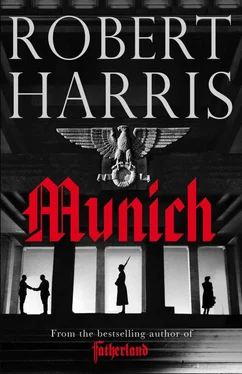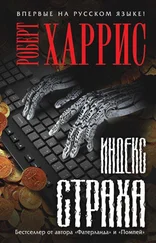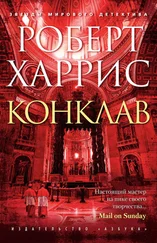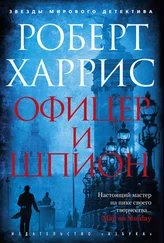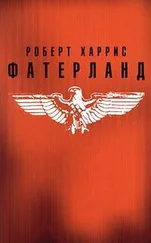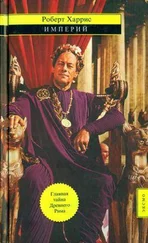Schmidt glanced at it, and then began to read it out in German, carefully emphasising every word.
‘“We, the German Führer and Chancellor and the British Prime Minister, have had a further meeting today and are agreed in recognising that the question of Anglo — German relations is of the first importance for the two countries and for Europe.”’
Hitler nodded slowly. ‘ Ja. ’
‘“We regard the agreement signed last night and the Anglo — German Naval Agreement as symbolic of the desire of our two peoples never to go to war with one another again.”’
At that, Hitler cocked his head slightly to one side. Clearly, he had recognised his own words. A slight frown appeared. Schmidt waited to be told to go on but Hitler said nothing. In the end, the translator continued of his own accord.
‘“We are resolved that the method of consultation shall be the method adopted to deal with any other questions that may concern our two countries, and we are determined to continue our efforts to remove possible sources of difference and thus to contribute to assure the peace of Europe.”’
For several seconds after Schmidt had finished, Hitler didn’t move. Legat could see his gaze travelling round the room. A process of calculation was evidently under way. Presumably, it was hard for him to refuse to sign sentiments which he had himself expressed in public. Yet it was also obvious that he resented it — resented this fussy old English gentleman tricking his way into his home and presenting him with this démarche. He suspected a trap. The English were cunning, after all. On the other hand, if he signed it, at least the meeting would be over and Chamberlain would clear out. And in the end it was only a scrap of paper, the expression of a pious hope, without any legal consequence. What did it matter?
This — or at any rate something like it — was what Legat afterwards surmised must have gone through the dictator’s mind.
‘ Ja, ich werde es unterschreiben. ’
‘The Führer says yes, he will sign it.’
Chamberlain smiled with relief. Hitler clicked his fingers at the adjutant, who hastened towards him, pulling out a pen. Dunglass stood to get a clearer view. Legat saw his chance and walked over to the door.
Hartmann had sat for ten minutes in the deserted vestibule. The press summary lay on the chair beside him. To his left he could hear the faint sounds of plates clattering, a woman’s voice, a door opening and closing. That, he guessed, must be the service area — the kitchen, cloakroom, servants’ quarters. The Führer’s bedroom must therefore be to the right — the place he had emerged from. The door to the room where Chamberlain and Hitler were meeting was closed; he could hear nothing through the thick wood. Hanging next to it was a watercolour of the Vienna State Opera House — technically proficient, but stilted and soulless. He suspected it must be Hitler’s own work. He rose and crossed the parquet floor to examine it. Yes, there were his initials in the bottom right-hand corner. Pretending to study the picture more closely, he glanced towards the Führer’s bedroom in the shadows at the end of the passage. There was a room adjoining it, only four or five paces away. Curiosity overcame him. He looked towards the kitchen to check he was unobserved, then casually crossed to it and opened the door.
It was a small bedroom looking out on to the trees in the back garden. The Venetian blind was half-down. There was a strong sickly-sweet scent of both dried and fresh flowers and of dark cinnamon-like perfumes that had dehydrated in their bottles. On the dressing table were a vase of withered roses and a bowl of yellow and purple freesias. Draped across the bed was a simple white cotton nightdress like the one Leyna had been wearing. He walked to the end of the bed and opened the door to a bathroom. He could see, through the open door opposite to Hitler’s bedroom, a jacket hanging on the back of a chair. As he retreated he took a closer look at the dressing table. A framed black-and-white photograph of a dog. A pile of notepaper with Angela Raubal in the top-left corner. A copy of the fashion magazine, Die Dame . He checked the date: September 1931.
Leyna had been right. Once one saw it, one could not doubt it. The proximity of the room to Hitler’s, the unnatural stifling closeness, the shared bathroom, the way it had been left as a shrine, like an Egyptian burial chamber –
Behind him he heard a noise. He stepped back quickly and closed the door. Legat was emerging from the drawing room. After glancing over his shoulder he said in a quick, quiet voice, ‘I’m afraid I have bad news — the Gestapo have the document.’
It took Hartmann a moment to adjust his mind. He looked past Legat to the open doorway but couldn’t see anyone. He whispered, ‘When?’
‘Less than an hour ago. They searched my room while I was showering.’
‘You’re sure it’s definitely gone?’
‘No question of it. Paul, I’m so very sorry—’
Hartmann held up his hand to silence him. He needed to think. ‘If it’s less than an hour, they must be looking for me. I—’
He stopped himself. The adjutant had appeared behind Legat. He emerged from the drawing room, followed by Chamberlain and Hitler. After them came Schmidt and Dunglass. The Prime Minister was holding two small pieces of paper. He gave one to Hitler. ‘This is for you, Herr Chancellor.’
Hitler handed it immediately to the adjutant. Now that his visitors were leaving he seemed more relaxed. ‘ Doktor Schmidt begleitet Sie zu Ihrem Hotel. Ich wünsche Ihnen einen angenehmen Flug. ’
Schmidt said, ‘I will escort you back to your hotel, Prime Minister. The Führer wishes you a pleasant flight.’
‘Thank you.’ Chamberlain shook hands with Hitler. He looked as if he would like to make a further short speech but decided against it. The adjutant opened the front door and the Prime Minister went out on to the landing with Schmidt. Dunglass said, with an edge of sarcasm, ‘Coming, Hugh?’
Legat knew he would never see Hartmann again. But there was nothing he could say. He nodded to him and went out after the others.
Once the door had closed, Hitler stood staring at it for several seconds. He was rubbing the palm of his right hand with his left thumb — an unconscious action: round and round, as if he had sprained it. Finally, he noticed the press summary lying on the chair. He turned to Hartmann. ‘Is that what the foreign press are saying?’
Hartmann said, ‘Yes, my Führer.’
‘Bring it in here.’
Hartmann had been hoping to slip away. Instead he found himself following Hitler into the drawing room. The adjutant was straightening the furniture, smoothing the cushions. Hartmann handed over the press summary. Hitler fished in his breast pocket for his spectacles. From the street below came the sound of cheering. Glasses in one hand, he glanced at the window, then went over to it. He pulled back the edge of the net curtain and stared down at the crowd. He shook his head. ‘How can one make war with such a people?’ Hartmann crossed to a different window. The crowd had grown much larger in the last half-hour, once word had got out that Chamberlain was in the building. Several hundred people were lining the opposite pavement. The men were waving their hats, the women stretching out their arms. The angle made it impossible to see the Prime Minister’s car but one could tell its progress by the way people’s heads turned to follow it as he drove away.
Hitler dropped the curtain. ‘The German population has allowed itself to be duped — and by Chamberlain of all people!’ He shook out his spectacles and put them on one-handed. He began scanning the press summary.
Читать дальше
